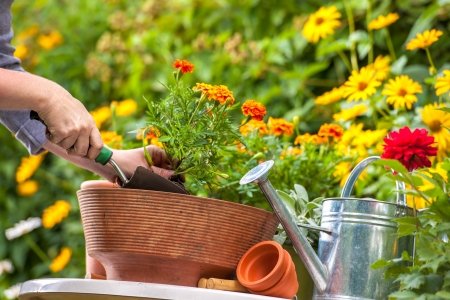Garden Pest Control


Gardeners understand the constant battle of dealing with unwanted pests in their garden beds. The key to sustaining a healthy garden is to create equilibrium between a number of predators and prey in your garden. When you create the perfect balance, it will ultimately eliminate the need for chemical pest controls.
Garden Pest Control 101:
- Spread out your plants. By spreading out your plants, you can help divert pests for making a home in your garden. It becomes difficult for the pests to make themselves comfortable when you place the same plant in different areas of your garden.
- Remain active. Investing in a plant magnifying glass will help you to catch pests quickly. You should check the plant’s buds, shoot tips, and underneath the leaves. At night, you will need to do a quick scan with your flashlight to detect any nocturnal pests (slugs or snails).
- Pull weeds. You will need to consistently pull weeds and keep your eye out for any pests that may have been hiding.
- Know the difference between predator & pests. Predators can feed off of the pests in your garden. It is important to understand the difference to prevent killing the good guys. Become familiar with your predator’s larvae. They sometimes hide underneath leaves and bark mulch during the daytime then come out at night to eat your pests.
- Welcome the beneficial insects. Certain insects can be beneficial to your garden. To encourage nectar-feeding insects, offer hibernation sites (plant log pile or flowers).To attract frogs and toads, provide a small pond surrounded by grass. You can also lure birds by providing them with a water and food supply. Birds can be beneficial to a garden because they feed off of insects and caterpillars.
- Plant Mint in Pots. We recommend placing mint into pots because it can overtake your entire garden. Mint can deter pests from your garden plus it tastes delicious! Place your mint plant in an area that gets morning sun and shade in the afternoon.
Pests will always be a problem for gardeners, but these simple steps can help you deal with them a little better. Are there any pest control remedies you live by? We would love to hear about them in the comment section below.

